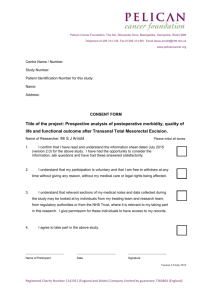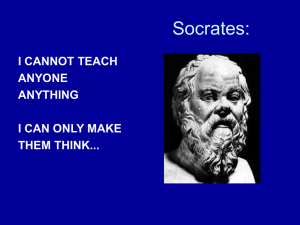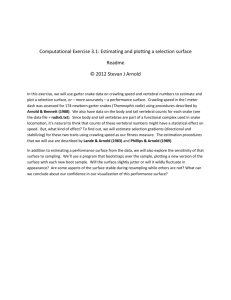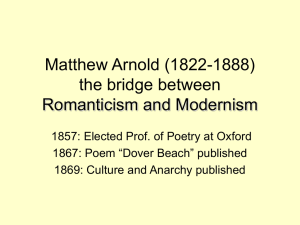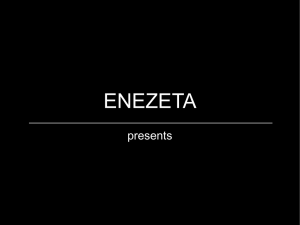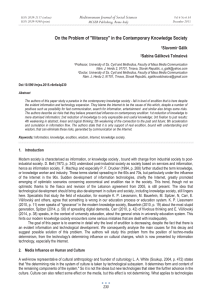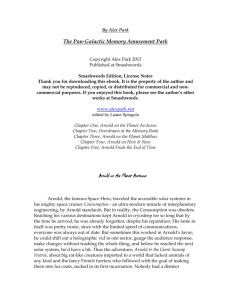Arnold on Critical Perception
advertisement
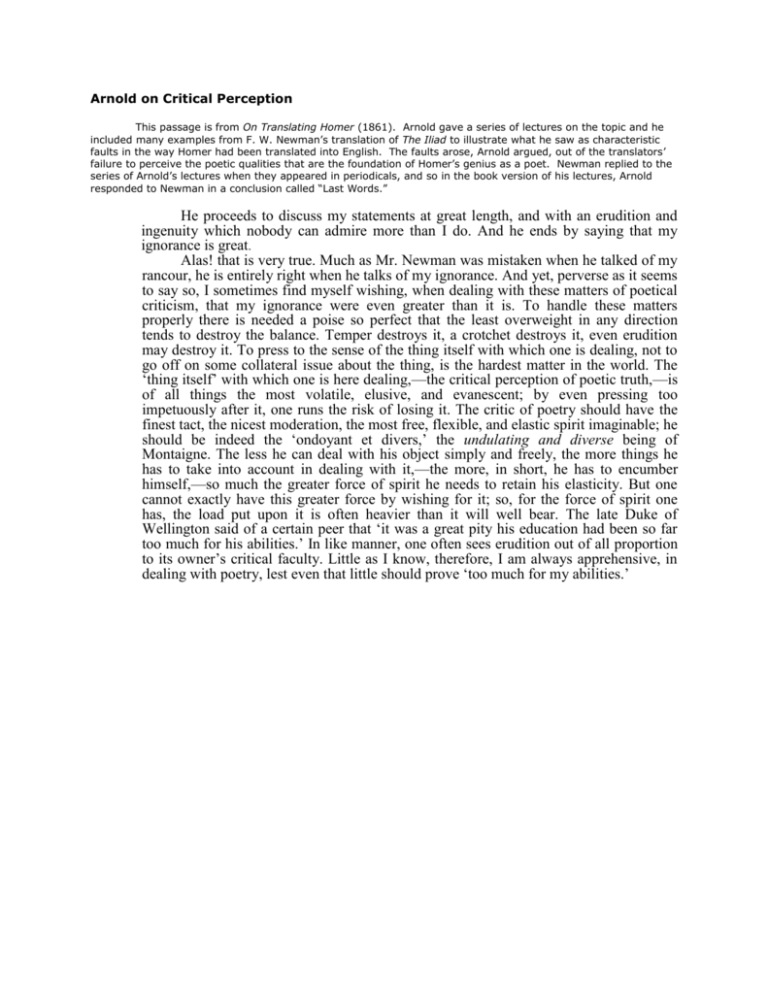
Arnold on Critical Perception This passage is from On Translating Homer (1861). Arnold gave a series of lectures on the topic and he included many examples from F. W. Newman’s translation of The Iliad to illustrate what he saw as characteristic faults in the way Homer had been translated into English. The faults arose, Arnold argued, out of the translators’ failure to perceive the poetic qualities that are the foundation of Homer’s genius as a poet. Newman replied to the series of Arnold’s lectures when they appeared in periodicals, and so in the book version of his lectures, Arnold responded to Newman in a conclusion called “Last Words.” He proceeds to discuss my statements at great length, and with an erudition and ingenuity which nobody can admire more than I do. And he ends by saying that my ignorance is great. Alas! that is very true. Much as Mr. Newman was mistaken when he talked of my rancour, he is entirely right when he talks of my ignorance. And yet, perverse as it seems to say so, I sometimes find myself wishing, when dealing with these matters of poetical criticism, that my ignorance were even greater than it is. To handle these matters properly there is needed a poise so perfect that the least overweight in any direction tends to destroy the balance. Temper destroys it, a crotchet destroys it, even erudition may destroy it. To press to the sense of the thing itself with which one is dealing, not to go off on some collateral issue about the thing, is the hardest matter in the world. The ‘thing itself’ with which one is here dealing,—the critical perception of poetic truth,—is of all things the most volatile, elusive, and evanescent; by even pressing too impetuously after it, one runs the risk of losing it. The critic of poetry should have the finest tact, the nicest moderation, the most free, flexible, and elastic spirit imaginable; he should be indeed the ‘ondoyant et divers,’ the undulating and diverse being of Montaigne. The less he can deal with his object simply and freely, the more things he has to take into account in dealing with it,—the more, in short, he has to encumber himself,—so much the greater force of spirit he needs to retain his elasticity. But one cannot exactly have this greater force by wishing for it; so, for the force of spirit one has, the load put upon it is often heavier than it will well bear. The late Duke of Wellington said of a certain peer that ‘it was a great pity his education had been so far too much for his abilities.’ In like manner, one often sees erudition out of all proportion to its owner’s critical faculty. Little as I know, therefore, I am always apprehensive, in dealing with poetry, lest even that little should prove ‘too much for my abilities.’
